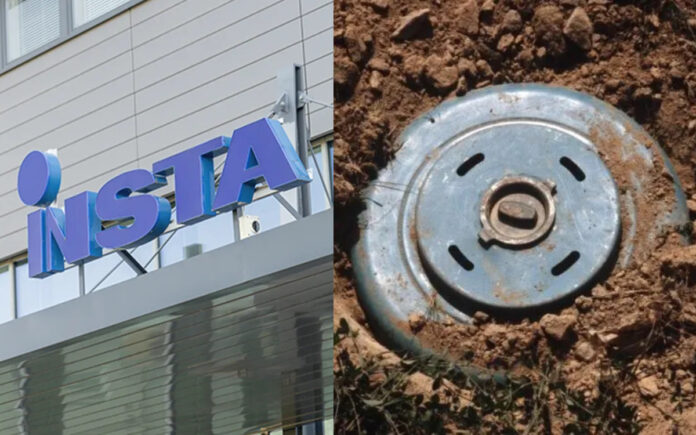Helsinki: Finnish technology and defense company Insta has expressed interest in producing anti-personnel land mines once Finland officially withdraws from the international mine ban treaty, known as the Ottawa Treaty.
The announcement follows Finland’s recent declaration that it plans to exit the 1997 Ottawa Convention, which prohibits the use, stockpiling, production, and transfer of anti-personnel land mines. Citing escalating security threats from neighboring Russia, Finland said its withdrawal aims to strengthen national defense and enhance NATO’s deterrence posture along Europe’s eastern flank.
As one of the first companies to publicly voice interest in land mine production, Insta’s move could mark a new chapter in Finland’s defense industry. The country, which shares NATO’s longest land border with Russia, would be permitted to resume the production and stockpiling of land mines once the treaty withdrawal is finalized.
Other regional NATO members, including Poland, Estonia, Latvia, and Lithuania, have also indicated plans to withdraw from the Ottawa Treaty, citing similar concerns over Russian military aggression.
Insta, a private Finnish firm specializing in automation, cybersecurity, and defense technologies, said it may consider expanding its strategic collaboration with the Finnish Defence Forces to include land mines.
“If the decision is taken that we as a nation permit land mines again, of course we want to look from that point forward how we can be involved in the context of our strategic partnership,” said Insta CEO Tapio Kolunsarka in an interview with Reuters, adding that the company has not yet made a decision on producing land mines.
When asked whether Insta might export land mines in the future, Kolunsarka said:
“Of course, if you look at our steel business, it is international, but it is too early to speculate on these things.”
He also emphasized the company’s past work on alternative technologies:
“If we think about the development work we have done over the past years for technologies to replace land mines, of course there are synergies in our expertise.”
Insta has previously developed a remotely-triggered “bounding mine” designed to jump into the air and disperse shrapnel upon activation. This mine was intended to serve as a replacement for the more than one million land mines Finland destroyed after joining the treaty in 2012.
More recently, Insta adapted the bounding mine into a drone-based aerial weapon called the “Steel Eagle,” which disperses thousands of steel balls over a 2,000-square-meter (21,528-square-foot) area. The company said it developed the weapon in collaboration with Ukrainian partners.
Also Read | TikTok Sale to U.S. Investors Delayed Over Beijing’s Objections
While former U.S. President Joe Biden approved the delivery of anti-personnel land mines to Ukraine last year, global reactions to Finland’s and other nations’ withdrawal from the Ottawa Treaty have been mixed.
The United Nations has strongly criticized the move, warning of its broader humanitarian implications.
Also Read | Gavi Sends Over 1 Million Meningitis Vaccines to Nigeria Amid Outbreak
“Withdrawing from the Anti-Personnel Landmine Convention would weaken the established norm against the use of anti-personnel landmines and reverse critical humanitarian advancements,” the UN said in a statement, calling the treaty “a key humanitarian disarmament treaty that saves lives.”
As Finland proceeds with its plans to exit the treaty, companies like Insta may soon play a pivotal role in redefining the country’s modern defense posture, triggering renewed debate over the ethical and strategic dimensions of land mine production.



